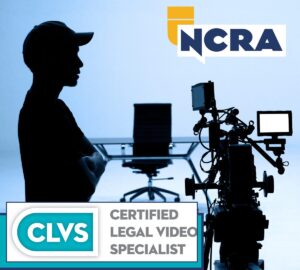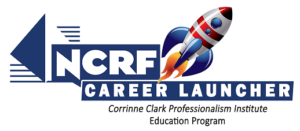By Rick L. Congdon

There is a fine line between perseverance and stubbornness. For me, court reporting school was the most difficult thing I had ever attempted in life. Mine is a not-so-short story about struggle, and it includes two storms, one being a court reporting student and the other a life-threatening winter storm in Colorado.
I started court reporting school in Topeka, Kan., in late September of 1975. There were 12 people in the class on that first day. Within six weeks, the class had slowly shrunk to seven. The dropout rate for court reporting students has always been high. I knew this from the beginning, but I was determined not to be a quitter. I had decided I really wanted to do this.
In school, I had not been a great student, even though I made the honor roll steadily my last two years of high school and attended college for a year. Nothing caught my interest. With court reporting, I discovered very early on that weak-minded me needed to be serious about practice and study. This wasn’t like my experience in high school or college where I could skip class, make an earnest effort at studying a little, take a test, and manage a passing grade. With this, I needed to be dead-on. This required real work.
I realized this after I found myself falling behind the other students. I was the only male in the class, so I felt a little humiliated by my slow start. Those girls were all naturals; I was not. They played piano, had taken shorthand, were secretaries, and had office skills. They were moving on ahead quickly, and I was falling behind. It was going to be a difficult road for me. I eventually found out that building speed was the most difficult part, and I, after much hard work, began to gradually catch up.
I thought if I out-practiced everyone by taking loads of speed tape daily, I would get over the hump and get ahead. What I found out by December 1976, more than a year into the course, was that I was practicing wrong. I took down hours and hours of tape and devoted little time to readback. Some of the speeds were below my best speed, some were at my best speed, and some were just too fast. I thought that taking tape in this manner would pull me along and speed me up. It actually slowed me down and taught me to drop.
I wasn’t progressing. I was also becoming frustrated and depressed and thinking about dropping out of the course entirely. This wasn’t the road I wanted to be on.
Let me digress by saying that I found out that I was at a point in my court reporter training where I had hit a hump, a steep incline, a plateau, or something I would describe as worse, a complete wall in my search to obtain required speed. I started out trying to visualize how to write what I was hearing, but as dictation speeds increased along the path to gaining speed, I had to be able to write subconsciously, without thinking of the specific key strokes so much. It was a process of listening to what’s being said while writing what’s been said with speed and accuracy.
Sometime in the fall of 1976, I passed three 120 wpm tests with 99 percent accuracy, the required accuracy to advance to the next speed class in our school. Passing my 120s allowed me to go into the 140-160 wpm class, and I was dead set on trying to get my 140s passed before the Christmas break. I would take tape all afternoon, practicing in the wrong manner as I have described before. I got so bogged down and so frustrated that I wasn’t even able to write 120. So when the Christmas break hit, I felt defeated and deflated, so much so that I didn’t even take my steno machine home that Christmas to practice. I decided I was going to spend the next two weeks at home, relaxing, seeing friends, going out, and having a good time. (Back then, in my early twenties, that meant drinking beer, going to bars, and meeting girls.)
Two weeks later, after this period of relaxing, frolic, and mayhem, I returned back to school rested and revived and ready to try to give it another good effort. Our speed test days were on Tuesdays and Fridays back then. We’d take the dictation in the classroom, and then run off to the typing room to type up the tests. I took tape on that Monday, but I switched things. I took three five-minute takes and then read them back as practice. That Tuesday, I passed two of the required 140 wpm tests with 99 percent accuracy. On Friday, I passed the third test.
Passing these tests caused me to think: “What had I been doing wrong?” I analyzed the situation and began to practice differently. From then on, I would take three five-minute sessions of tape at my best speed, and I would read it all back. I found that reading it back helped greatly because it helped solidify in my mind the keystrokes that I was making during dictation. The more I read back, the clearer my notes became, and by taking dictation at my best speed, I was helping stretch my retention length in my brain.
By that following fall, I had passed my 200s and felt I was ready to take the Certified Shorthand Reporter (CSR) test. The testing date was in October, and the pressure was on. I wanted to get my certification and get out of school. I felt I did very well on the test, or so I thought. I had gotten it all down and transcribed within the allotted time, but I did not have enough time to proof my work against my paper notes. The time allowed for the CSR test back then was three hours. When the results came back in November, I was devastated! I had failed! To this day, the only thing I can surmise is that I must have missed a fold of notes in transcribing.
This meant six more months of school, practicing, practicing, practicing some more, and working a part-time job that I hated. I was sick of all of that. I wanted to get going and get on with my life and my future!
By December, the classmates that had managed to pass the October CSR test had moved on to jobs and their future lives, and there I was, stuck, dejected, defeated, depressed, and unhappy. By February, I was angry — not at anyone else — but angry at myself for having failed. I needed to learn to transcribe faster so that I could have enough time at the end to proof my notes against my transcription.
About that time, a female friend of mine from back home had moved to Colorado and was now living in Estes Park. Let’s call her Julie. I had an interest in her but we had never dated. I contacted her and told her about things, and we talked about me coming to Estes Park to see her.
Now, I’d had that part-time job for about eight months, and it was very hard work. I had to go through about 35 delivery trucks every evening and pull packages that were headed for certain zip codes in western Kansas. They wouldn’t let me come to work before 6 p.m., and the truck leaving for western Kansas had to be gone by 9:30 p.m., so it was very fast work. It wore me out every day. Those trucks were all full of packages, and you had to climb over the packages, checking for zip codes.
By February of 1978, I had managed to save some money, and I was going to be receiving a tax refund, so I had the idea and perhaps the need for a late February vacation and a visit to my friend, Julie. I had in mind that maybe I would move to Colorado eventually, find another part-time job, continue to study, and then take the CSR test there. Maybe this was just the move I needed to make! But in case things didn’t work out in Colorado, I wanted to try to hold on to my job in Kansas, just for safekeeping. So that Monday, I went in to work early and asked to speak with my boss.
He said, “What do you need?”
I said, “Can I have a week off? I need to go do something.”
He said, “No.”
I said, “Okay. I quit.”
And with that, I was out of a job and about to embark on a much-needed vacation to Estes Park and Julie.
I immediately went and had new tires put on my 1971 Monte Carlo. I went home and told my roommate what I was about to do. That Tuesday morning, I packed all of my things in the car, said goodbye to the roommate, and hit the road. Only one problem: I hadn’t bothered to check the weather report. Dead of winter in northern Kansas with anticipated travel to Colorado means checking the weather report for possible winter storm conditions. Not smart of me to ignore that! When I was young, I was full of stubborn arrogance.
Traveling down I-70 in Kansas headed west to Colorado gave me a feeling of freedom at first. Then, after a couple of hours, snow began to fall, and it got heavier and heavier. Soon it was a full-fledged winter storm I was driving through. With all of the stuff in my auto, which included everything I had in my apartment — my clothes, TV, court reporting equipment, books, and so on — the interior of my car was so overloaded that the warm air didn’t have enough room to circulate to keep the windows from fogging up.
The storm was throwing wet snow and slush on the windows that would freeze instantly to the wipers. I had to frequently stop and beat the ice off the wipers. The wind was blowing snow across the highway, and it was piling up higher and higher. The wind gusts were a constant 30 mph with sudden gusts up 50 to 60 mph. These gusts would rock my car back and forth. I struggled to keep the car on the road.
I must have been the last person out of Kansas before they closed the gate. It was near midnight when I got to the Denver area, but to conserve money, I decided I would drive on to Estes Park and find a place where I could park the car and spend the night, starting the car every once in a while to keep warm.
When I started to get sleepy, I would play the radio loudly, I would sing, or I would roll the window down a bit to get some fresh air. I did everything I knew to do to stay awake and keep going. Soon I woke up and found that I was traveling 55 mph down the center of the low-slung ditch. I knew I didn’t want to slow down and get stuck, so I kept my speed and sought to edge myself back up on the highway one tire at a time, so as to not start my auto spinning down the highway.
I got the left two tires up on the highway rather easily, but the second two were a problem because the highway had about a two-inch lip at the shoulder that I had difficulty getting over. I was halfway in the right lane and halfway on the shoulder of the roadway. I finally had to just chance it, so I popped the Monte Carlo to the left abruptly. The right rear tire caught the lip, and although I had popped the auto up onto the four-lane road, I was now spinning to my left at 50 mph down the center of a very slick highway. I spun around three times in the center of the roadway, praying all the while: “Nobody hit me, please!”
The car finally stopped, and the engine died. I was facing in the wrong direction. I quickly started the car and got it headed in the right direction. I thought, “Whew! That was close.” I then noticed that there were no other vehicles on the road except me, and snow plows were going in the opposite direction.
So I headed on down the highway, determined to make my intended destination. I had not gone far when I discovered that I had a flat tire. I must have run over a bottle or something in the ditch. So I pulled the car over on the shoulder. There I was, in the middle of the night on a deserted road that was probably closed, surrounded by snow in the middle of a winter storm that wasn’t letting up anytime soon. I thought about just sitting there with the motor running and the heater on, and then the thought occurred to me that if I had an exhaust leak, the carbon monoxide might asphyxiate me. So this could mean life or death for me.
I made the decision to unload everything out of the trunk, get the jack out, jack up the car, and put the spare tire on. I had a thick navy coat and a pair of gloves, but I could not find my sock cap. I got out in this blizzard, emptied everything into the ditch from the trunk, and got busy replacing the tire. However, the new tires were put on with an air-impact tool, and I could not get the last lug nut to loosen. In fact, I was struggling so much with the last lug nut that I was grinding off metal. So now my bad situation just got worse!
The storm kept blowing snow and sleet, and I would get in the car and warm up with the heater. (To this day, I can still feel the hard sleet pounding into my open ears.) The snow would melt from my head and face and coat. Soon I was very wet. I’d get out to give the lug nut one more shot. I’d put all my weight and strength into it. I would slip and fall and bang my knees into the hard surface. I’d slip and hurt my fingers. I’d grind metal off and get back in the car frozen.
By now, a full range of emotions were hitting me. I was scared. I was angry. I was swearing. I was praying. It was crazy! I’d thaw out again and again. I was frozen, wet, and frustrated. This time, I decided I would chip down through the ice to the asphalt. I would chip the ice away and get a good foothold and press all of my weight on that lug nut with all of the strength that I could muster, and hopefully I could get the darn thing to loosen up and come off.
I made that one last attempt and finally I was able to get the lug nut to loosen, and as fast as I could, I took the old tire and wheel off and put on the spare. Then I put all of my stuff back into the trunk. I got back into the car wet, frozen, and thankful. I headed on down the road.
Then I noticed I needed gas, so I searched for a place to get gas. It took a while, but I finally found a truck stop on the side of the road, so I pulled in. As I got out of the car, a kid I would judge to be about 16 years old who apparently worked at the truck stop said, “Did you just come in off that road?” I said, “Yes.” He said, “That’s been closed for the past three hours!”
I eventually did make it to Estes Park, but things there didn’t work out as planned. Julie’s new boyfriend, who I didn’t know about, wasn’t too happy about me showing up for a visit. So after a few days of time spent in Estes Park, I went down to Denver and got a hotel room. I spent a few days in Denver and went to one of the court reporting schools there, looking for some information. I met a nice girl who was a student there. We hit it off. Later I took her out for dinner and a movie.
I even found a job working for the telephone company that week. I was to begin working that next Monday, but, instead, I decided to return to Kansas. I left Denver and went and stayed with a court reporter friend and his family in Wichita for the weekend. That Monday, I went back to the job I had quit. I asked my boss if he had found my replacement yet.
He said, “No.”
So I asked him, “Well, could I have my job back?”
He said, “Okay.”
So I went back to work at that same job. A month later, I took the Kansas CSR test and passed, and in April of 1978, I began my career as a court reporter.
I hope that maybe some court reporting students will read this and realize that court reporting is an adventure, even when you are in school. You need perseverance to succeed. You also need to make good decisions. All of us who have gone down this road have had to work hard to get through school and get certified. It’s a mental test of your ability to cope and to learn, but nothing worthwhile is achieved without great effort! You have to decide that, come hell or high water, and no matter what life throws at you, you are going to persevere and succeed.
Rick L. Congdon, RMR, is a freelancer based in Fort Smith, Ark. He can be reached at rlcongdon@hotmail.com.










